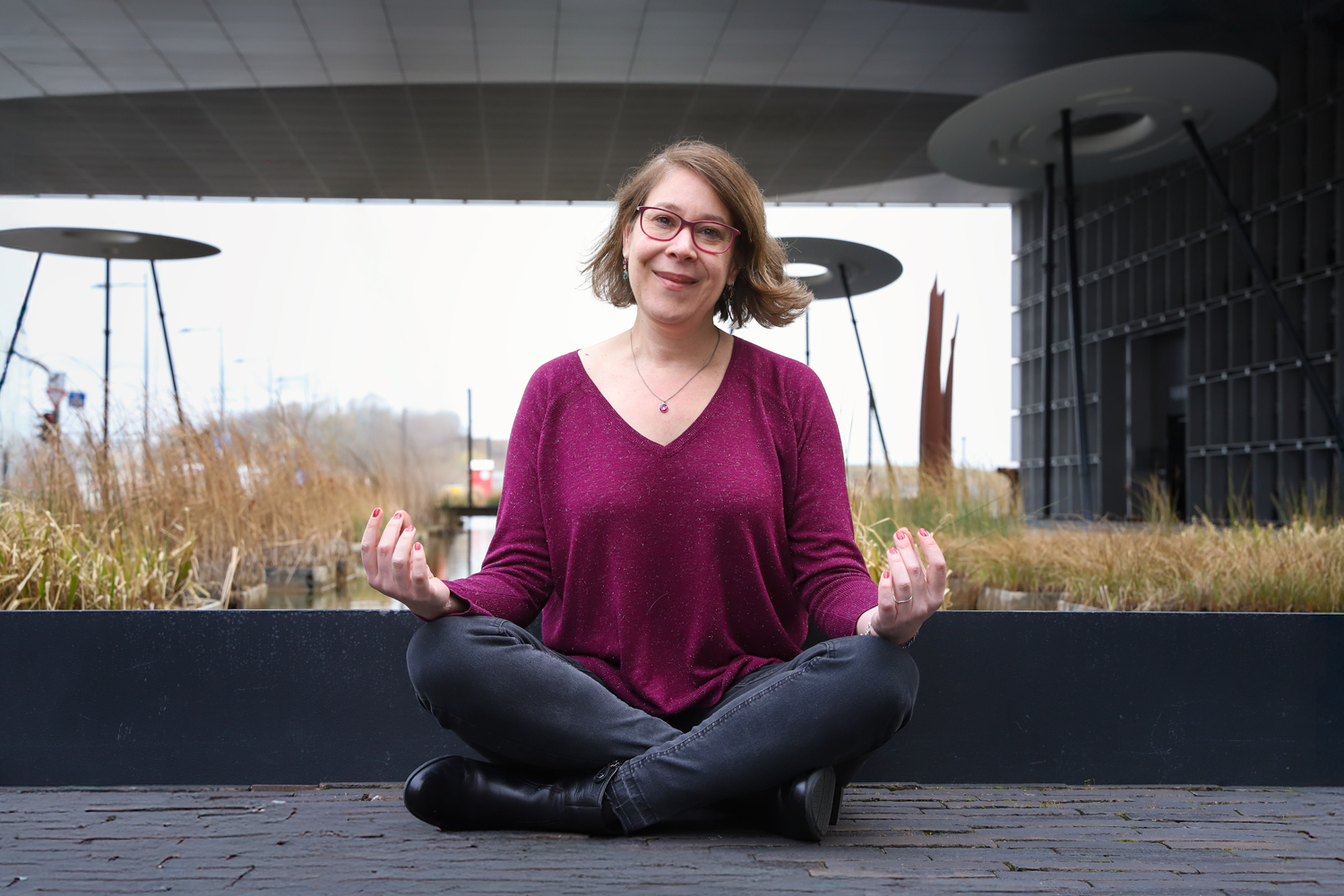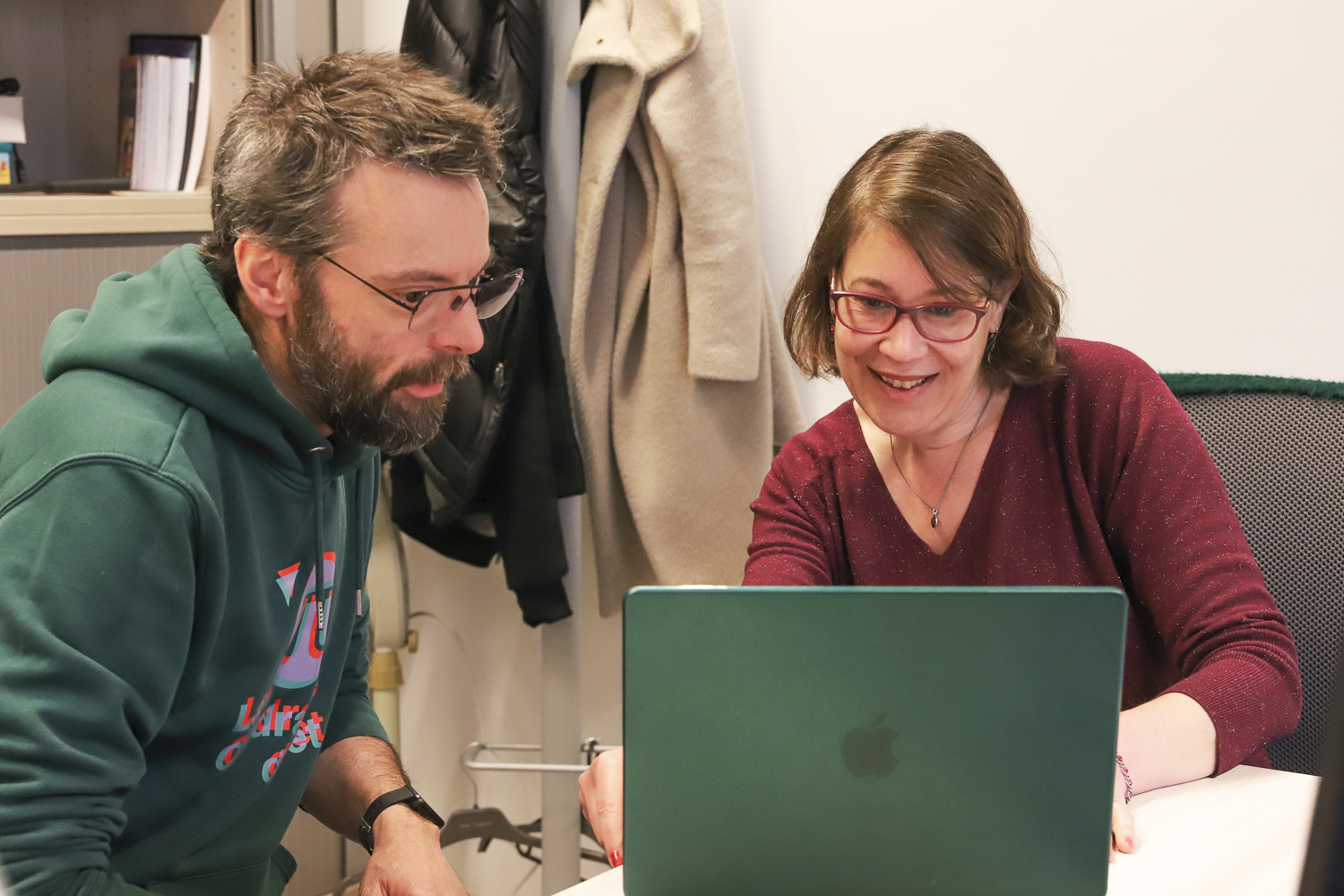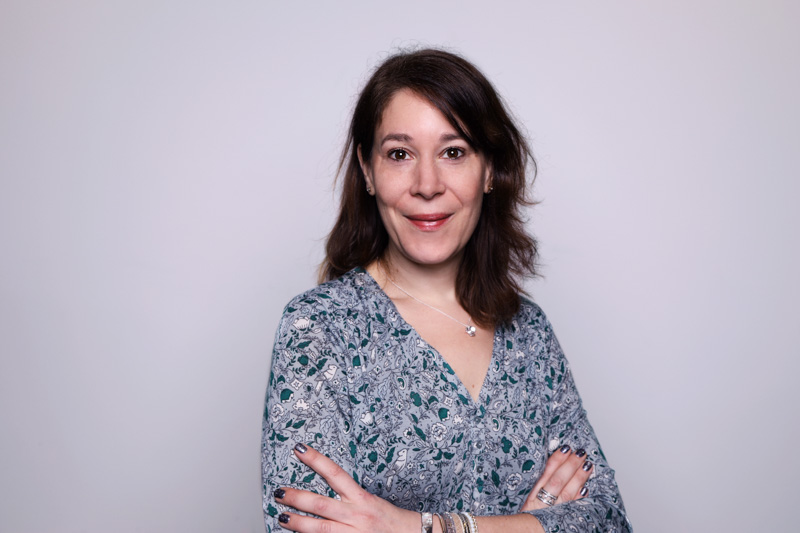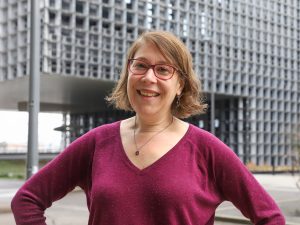In March 2025, Valérie Schafer took on the role of Deputy Director at the Luxembourg Centre for Contemporary and Digital History (C²DH) at the University of Luxembourg, succeeding Denis Scuto. The latter will now hold the “History and Migrations” chair, in partnership with the University of Luxembourg and the City of Dudelange. Valerie Schafer’s appointment marks a significant milestone for the research center, which is experiencing rapid international growth.
A dynamic and multifaceted journey
After a distinguished career at CNRS, Valérie Schafer joined the C²DH in 2018 as a Professor of Contemporary European History. She co-directs the Master’s program in Contemporary European History and and is a special advisor for the University of Luxembourg Archives. In parallel, she is a new affiliated member of ULIDE (University of Luxembourg Institute of Digital Ethics), serves on the management committee of the “Tensions of Europe” network, and holds the position of Secretary General of the Society for the History of Media (SPHM).
She already has experience in research management, she admits there will be a bit of “scaling up”, as she transitions from the European History (EHI) team of 20 to one of more than 100 colleagues. “But the role isn’t just about management tasks, it’s also about preserving values, creating enthusiasm and working strongly in a participatory mode, as we have always done, with colleagues.”
Supporting work-life balance
Schafer, who happens to be the first woman to take on the role, says that in the past, it hasn’t always been easy to reconcile her life as a professor and as a mother of three. “When I was younger, I had to make some difficult choices,” she explains. She recalls, in particular, the international career opportunities she had to forgo because they conflicted with her family commitments. On the flip side, “I also had the feeling that these challenges, in some ways, made me more pragmatic and efficient because I needed to optimise my work to also be able to fully enjoy family life.”

She also emphasizes the importance of strong institutional support in balancing career and personal life. “Initiatives such as the Gender Equality Office and inclusive policies are essential. The more we develop them, the more we foster diversity and inclusion in academia” she adds.
Dialogue is key to success
Schafer says she appreciates the C²DH’s multilingual and multicultural environment, plus its multidisciplinary nature. As she progresses into her new role, she’s looking forward to being able to be even more “invested in supporting, promoting the values, development and results of the C²DH, which was so welcoming to me.”
While she has always had a passion for teaching and research, and intends to continue, she’s also looking forward to celebrating “collective achievements”. Together with Director Andreas Fickers and the rest of the management team, she “feels the responsibility to support people in developing their skills and achieving their goals.”

For Schafer, the C²DH is driven by values, ethics and engagement with stakeholders, be they public or private institutions, the media, civil society, other communities. Moving forward, she thinks such engagement will play an even more important role. “We are already part of societal discussions, but we’ll probably have to engage even more, as we see new challenges coming from everywhere,” she adds. “We have a duty in science and education… this constant dialogue with stakeholders is key.”
Meet the Deputy Director
-

Valérie Schafer
Deputy Director of the C²DH – Full professor / Chief scientist 1 in Contemporary European History
